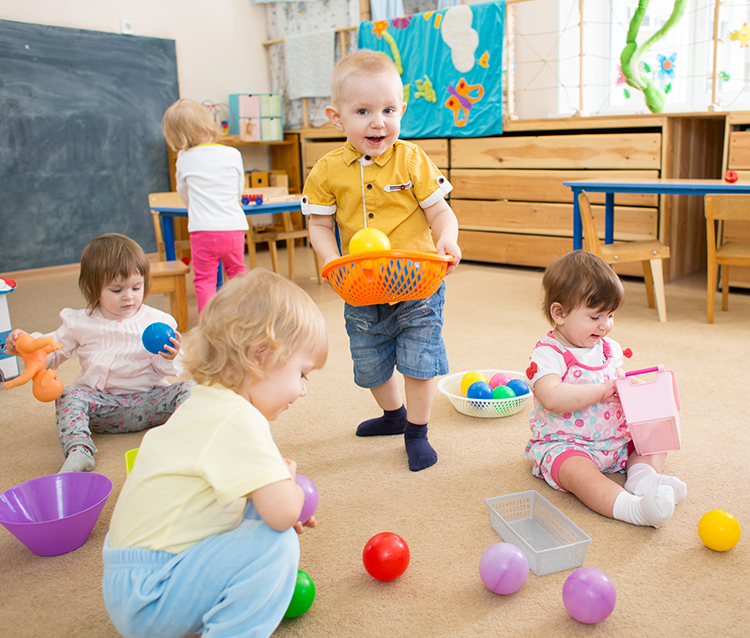The Importance of Play in Early Childhood

A recent news story on National Public Radio highlights the continued need to promote a play-based approach to learning. A randomized, longitudinal study of over 2,900 low-income children in Tennessee found that those who attended a free, public pre-kindergarten program initially scored higher than their peers on school readiness, but by third grade, were doing worse in school, with lower test scores, worse behavior, and higher special education enrollment.
The lead researcher for the study, Dale Farran, speculates on possible reasons for this: the program focused on drilling kids on basic skills rather than social-emotional development, many of the teachers did not have specific early childhood training, and much of the day was spent moving children around the building. Children’s later difficulties may be a reaction to the high amount of external control they experienced in school.
“‘We’ve simply asked too much of pre-K, based on early results from what were essentially showcase pilot programs. We tend to want a magic bullet,’ she says. ‘Whoever thought that you could provide a 4-year-old from an impoverished family with 5 1/2 hours a day, nine months a year of preschool, and close the achievement gap, and send them to college at a higher rate?’ she asks. ‘I mean, why? Why do we put so much pressure on our pre-K programs?’ We might actually get better results, she says, from simply letting little children play.”
When children’s daily play is intentionally included to support skills and abilities through all developmental domains, this is a curriculum. A classic example is children engaging in imaginative play scenarios such as “doctor” or “house.” Children are taking on the roles of others, acting in ways a person would behave or feel in the situation. This utilizes several cognitive skills such as awareness of others, emotional intelligence, role-playing, and impulse control. By observing how children act out these roles, teachers gain significant insight into their development and design opportunities for play that enhance skills.
